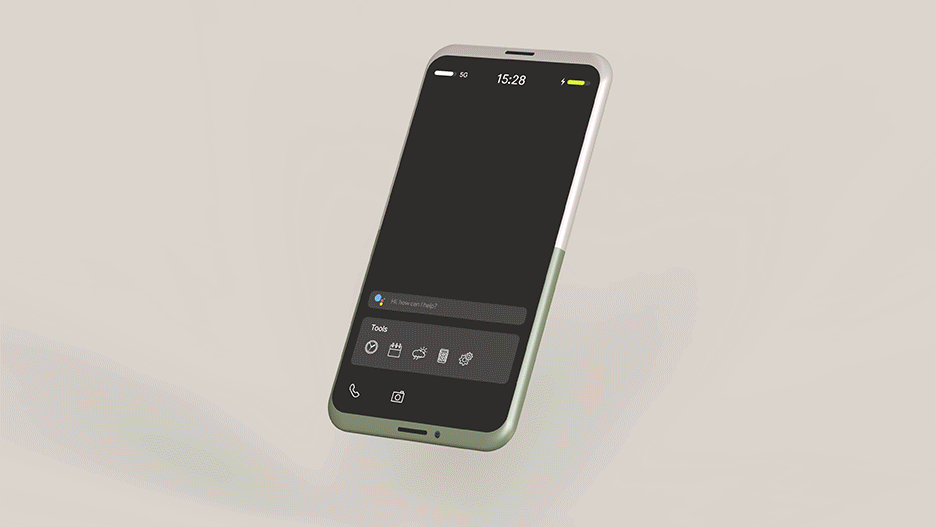
Morrama's "smarter phone" concepts aim to enhance your wellbeing
Smartphone users can easily switch their devices from full functionality to minimal "mindful" modes in these concepts by UK design agency Morrama.
The agency created three "smarter phone" concept designs as part of a study into the future of mobile devices.
Each design incorporates a wellbeing feature into the hardware or physical interface, going a step further than recent screentime-reducing software additions from Apple and Google.
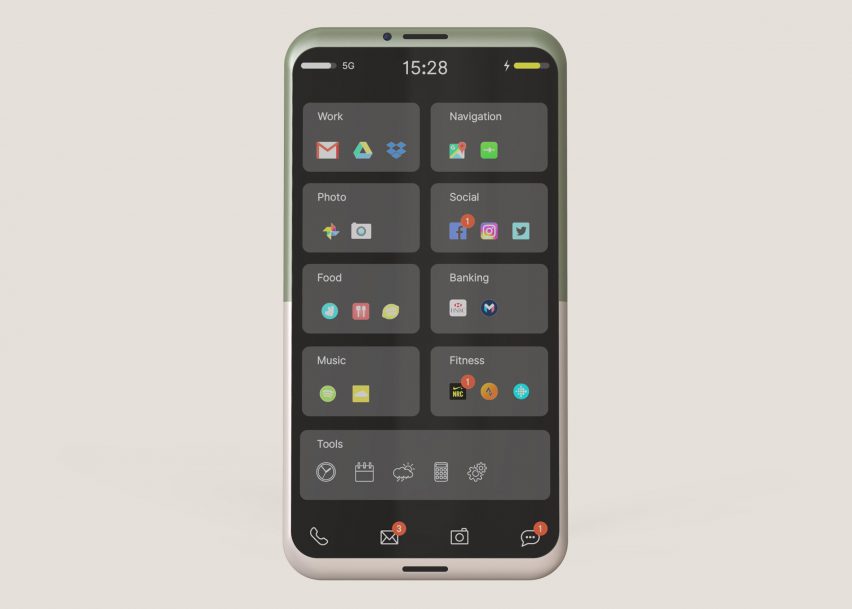
The first feature, called A Helping Hand, allows users to switch their phone into a more mindful mode by turning the screen upside down. In this mode, users can only access a few key apps – such as the weather, calendar, clock, camera and calls – whose icons display in monochrome at the bottom of the screen.
The usual reams of colourful app thumbnails and their notifications disappear, until the user chooses to put their phone the right way up again.
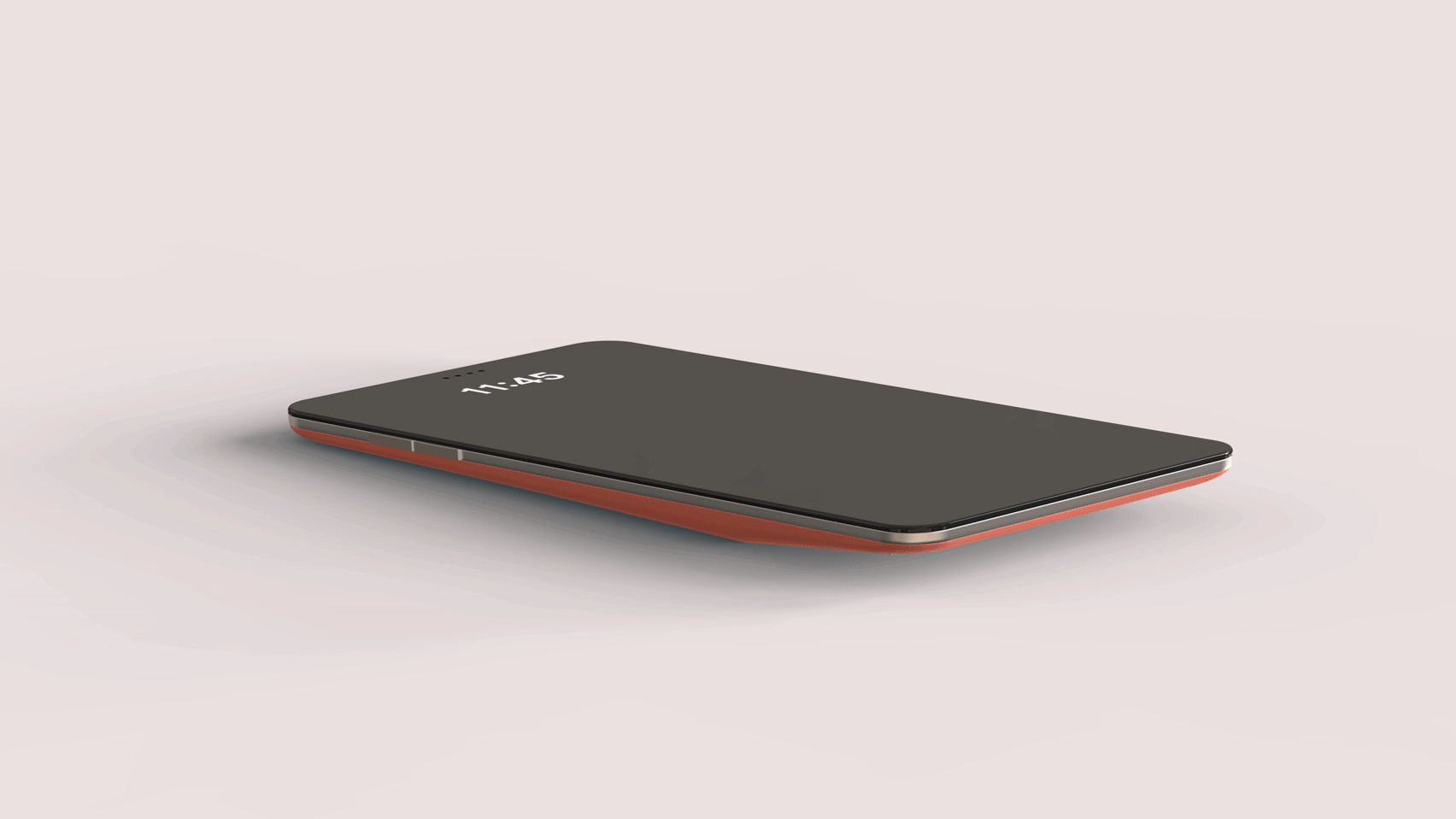
Morrama calls the second feature, which focuses on the phone's outer shell, A Quick Escape. It introduces a slight asymmetry into the phone back, which angles the screen away from the user when it sits on a flat surface.
To see notifications, they would have to push on the bottom of the phone, tilting it towards them.
"This study proposes smartphones that bring more conscious decision making to the user experience, ensuring the user is more actively pulling media and notifications rather than being constantly pushed them," said Morrama founder Jo Barnard.
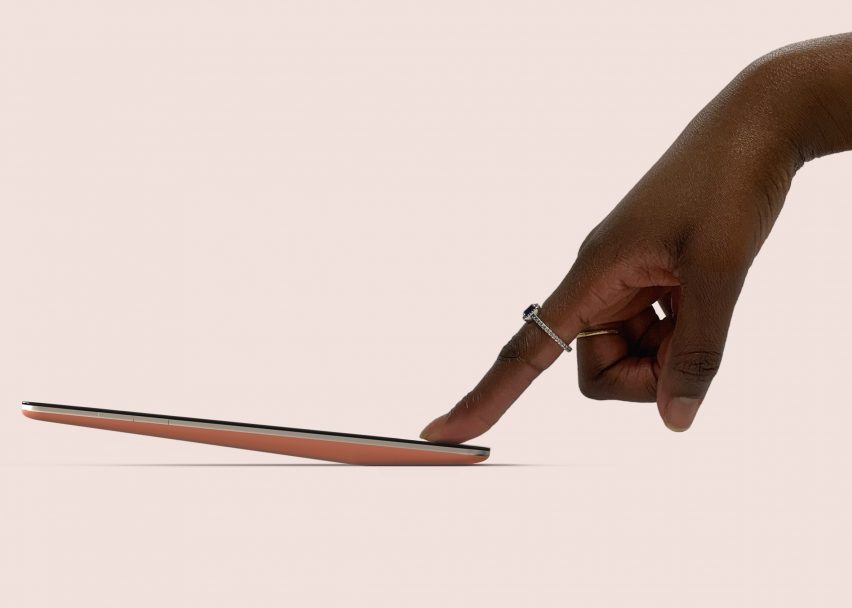
The studio's third concept, Present in the Moment, picks up on a common instinctual behaviour where people place their phone screen-side down when they want to be free of distractions.
To enable people to keep their phones in this position for longer, Morrama has added a tiny display onto the back that just shows the time and any urgent reminders. They have also placed a voice-assistant button on the back of this phone.
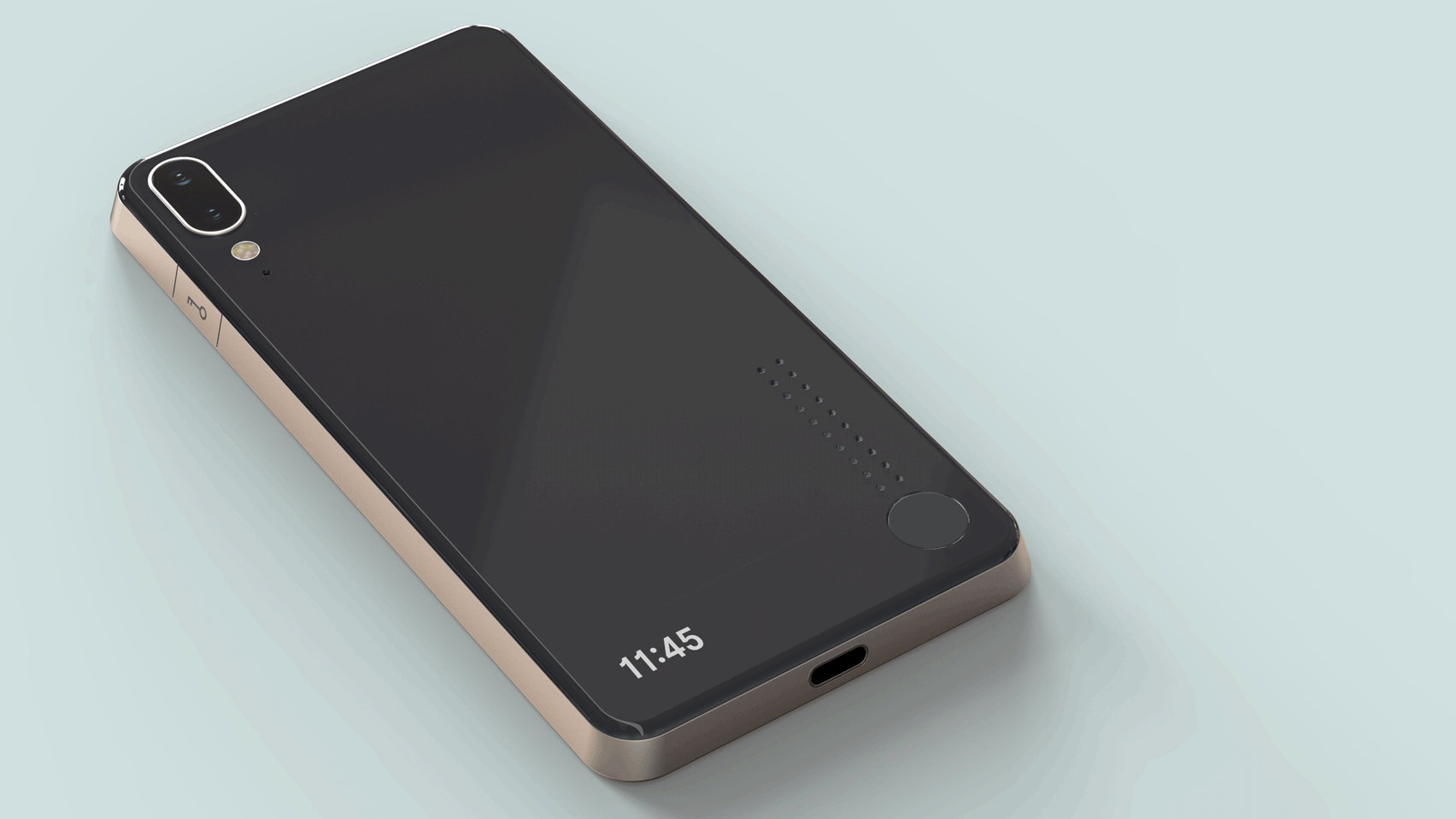
Morrama's phone concepts follow a recent trend for more stripped-back phones. Punkt has made a minimal phone designed by Jasper Morrison since 2015, while Light Phone emerged with its credit-card-sized take in 2017.
Interest in pre-smartphone handsets such as the Nokia 3310 has also been partly driven by consumers who desire a device that does less.
However, users usually choose those devices as secondary handsets for weekends, holidays or after-hours. The Morrama team wanted their concepts to offer users full and limited functionality in the one device.
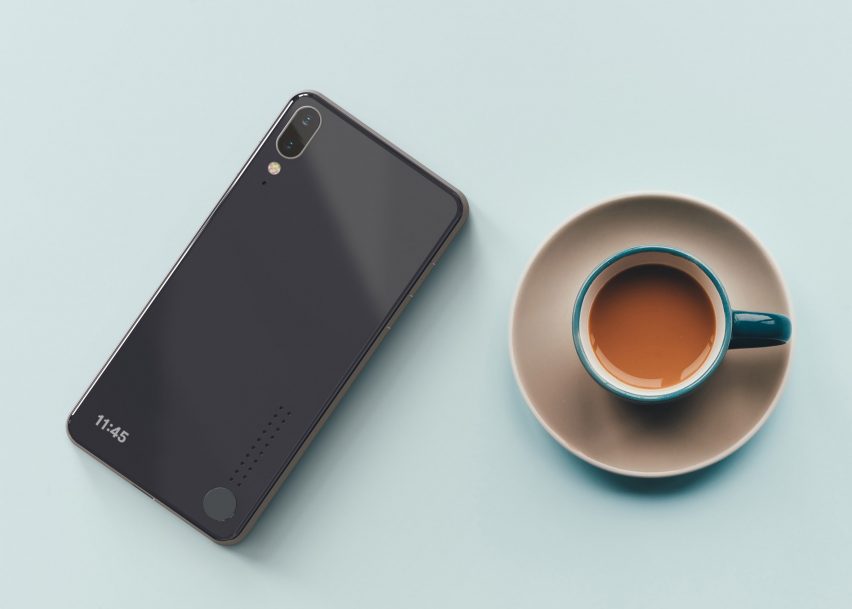
"Ultimately, we have a responsibility as designers to consider the wellbeing of consumers as a fundamental part of product development," said Barnard.
Barnard founded Morrama in 2015. Among the industrial design agency's past projects is the Angle aluminium razor aimed at millennials who want to reduce their plastic waste and the Wasl digital prayer beads for young Muslims.